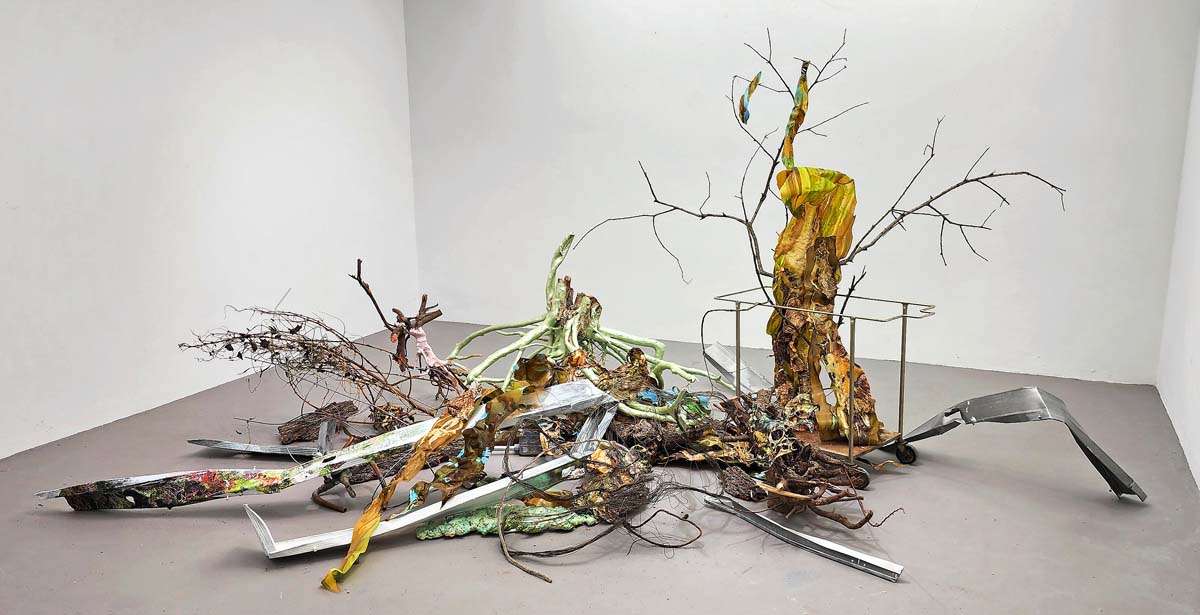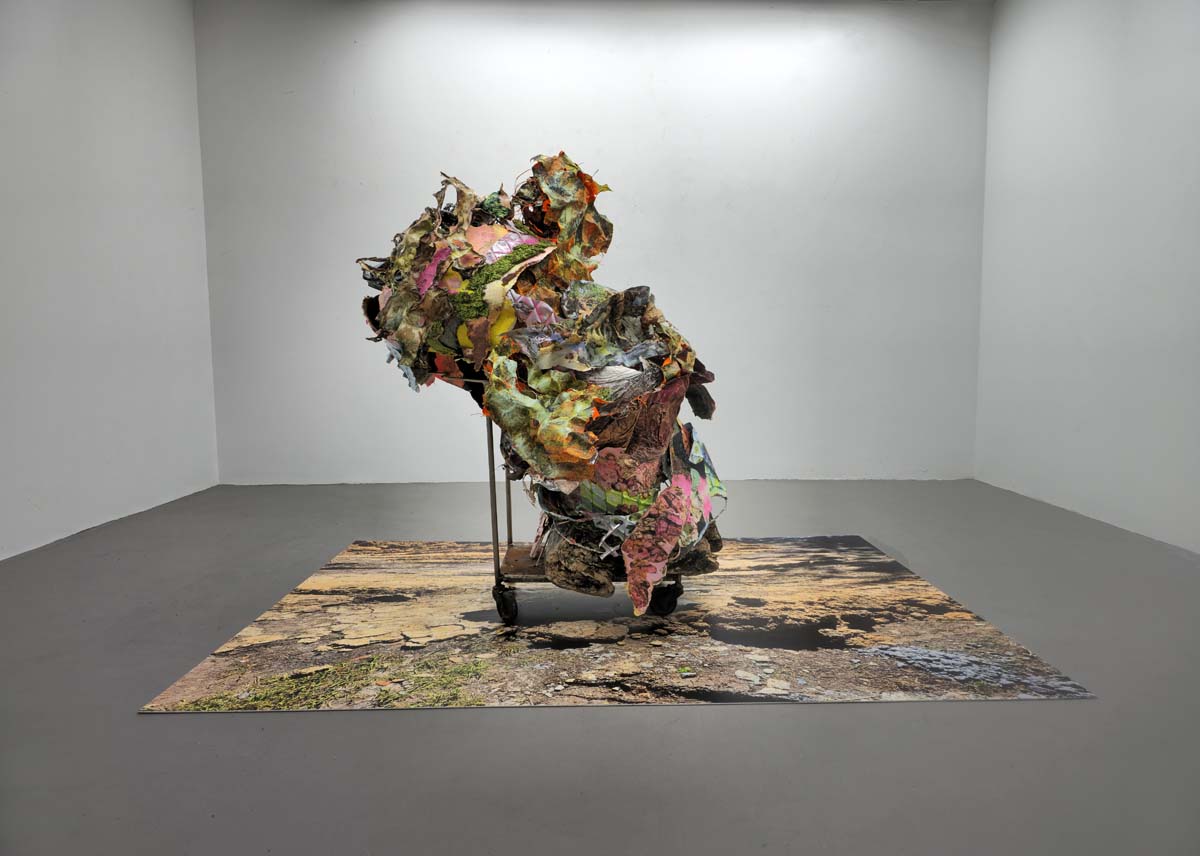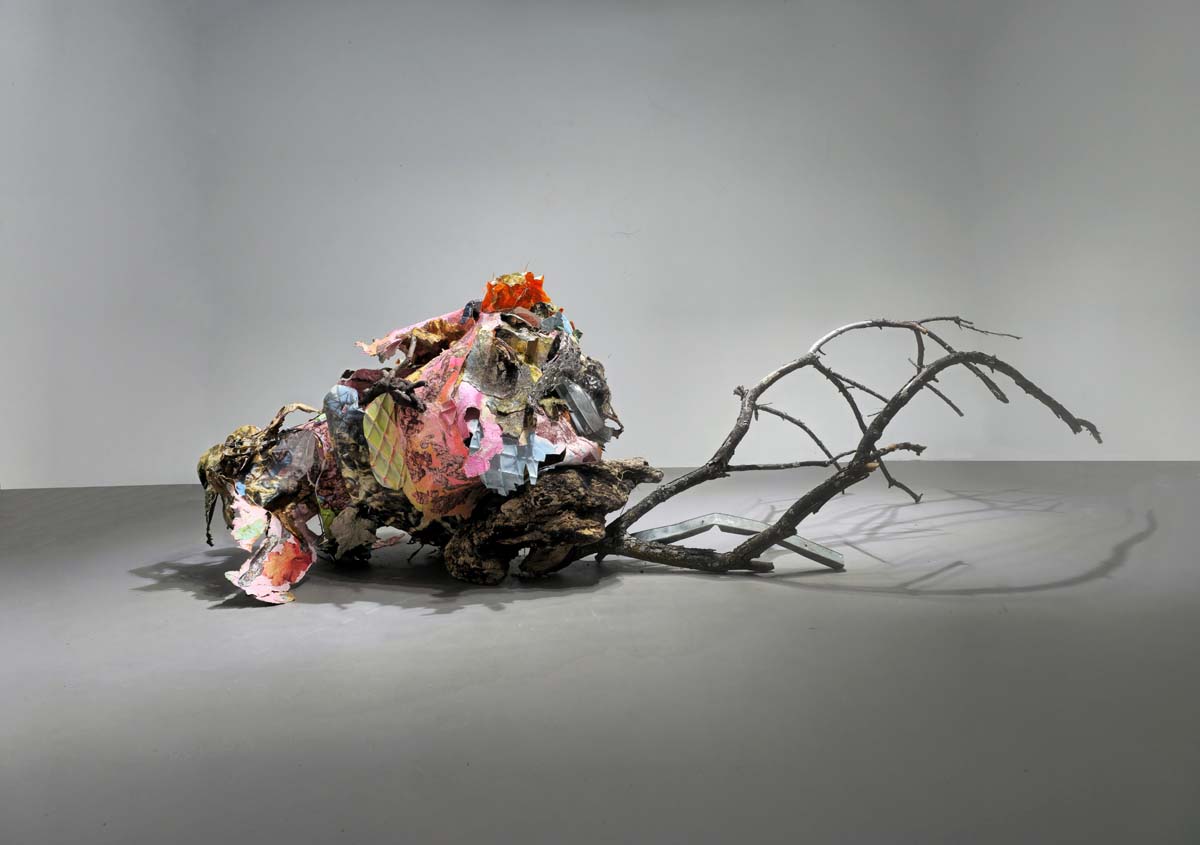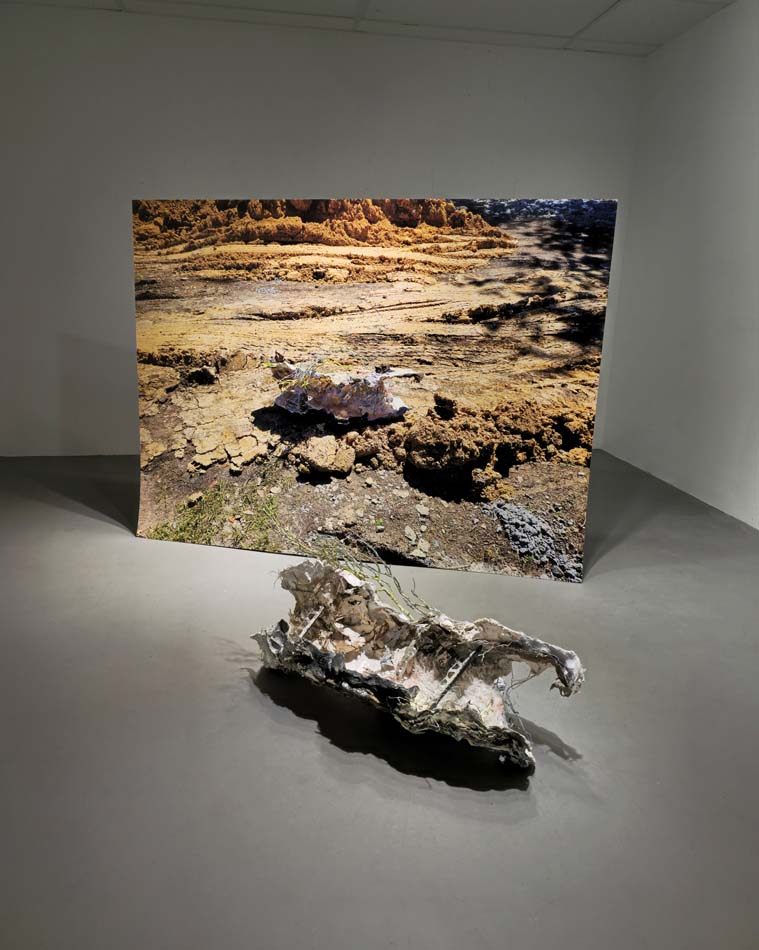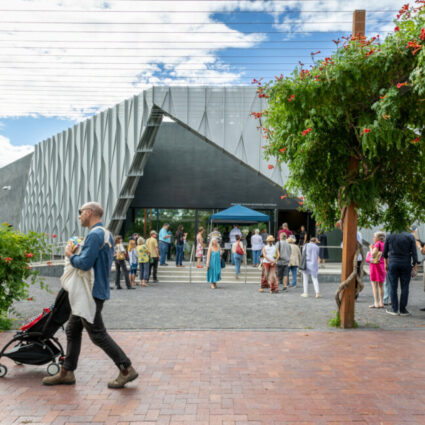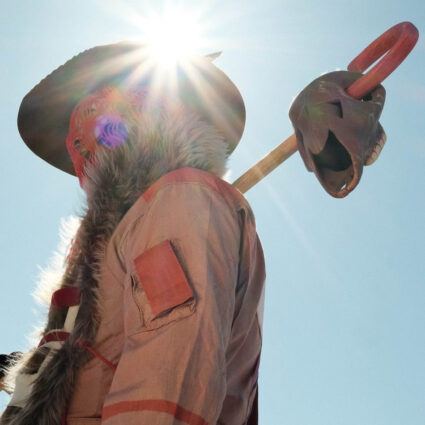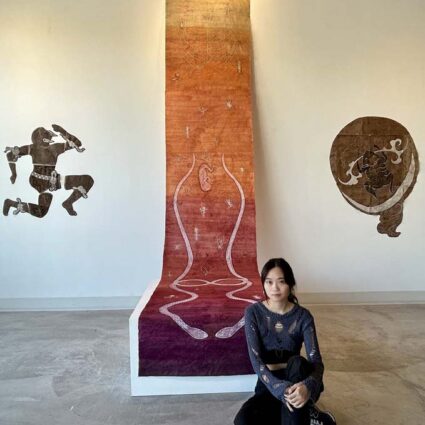Texas-based artist Bonny Leibowitz creates hybridized installations of natural and manufactured materials that reflect the impacts of isolation, environmental degradation, and human conflict.
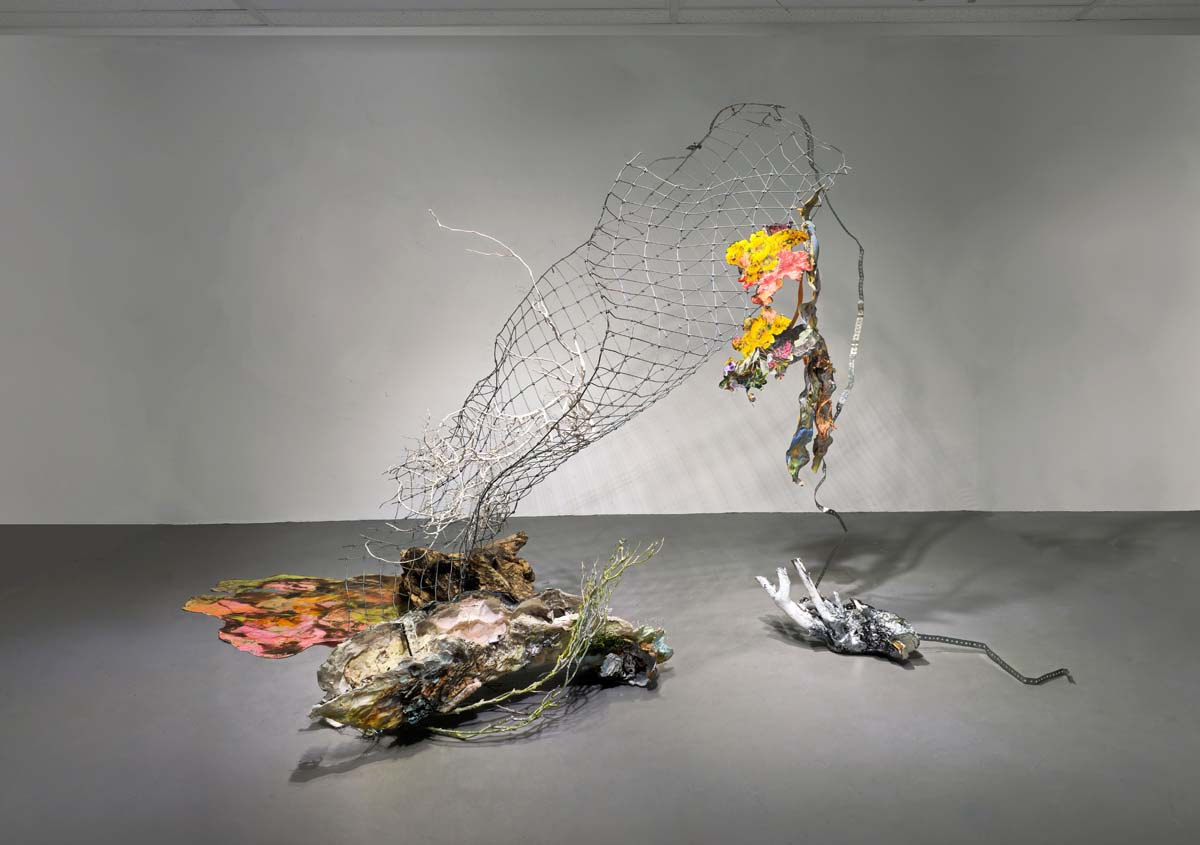
Dallas, Texas | bonnyleibowitz.com | @bonnyleibowitz
On any given day, you might find Texas-based artist Bonny Leibowitz picking up a tree branch spotted by the side of the road, sourcing metal from a salvage yard, or painting on a piece of Tyvek. With these diverse natural and manufactured materials, Leibowitz creates new hybridizations that speak to the impacts of climate crisis and human conflict.
“My work is an invitation to recognize the consequences of isolation, environmental degradation, and human intervention as we consider the histories we tend to repeat and how to move forward,” she explains.
Working in her Dallas studio, Leibowitz uses mangled industrial and architectural parts, plastics, and photography, intertwining them with branches and tree roots. “I use a lot of materials that look natural although they’re actually manufactured,” she says. “Creating that material confusion can help people think about the differences between truth and lies, and convey how the realities of our environment are different from what we might imagine or assume.”
Lately, she’s been preparing for her solo exhibition Adventures in Plunderland, which is scheduled to open at the Oak Cliff Cultural Center in Dallas in late 2025. And she’ll be adding welding to the mix to flesh out larger structures and installations.
Notably, her artworks often include deconstructed elements of prior works, an approach that embodies her vision of a radical future where humanity recognizes and acts on its connections to nature instead of operating from a place of separation and isolation.
“I don’t really see myself as a radical person, but I do think it’s radical to envision other realities and to see what we are doing,” reflects Leibowitz. “Just to be an observer can be radical. You might see something that can open your mind to new ways of thinking, making, and being and, in turn, affect others in new ways.”
